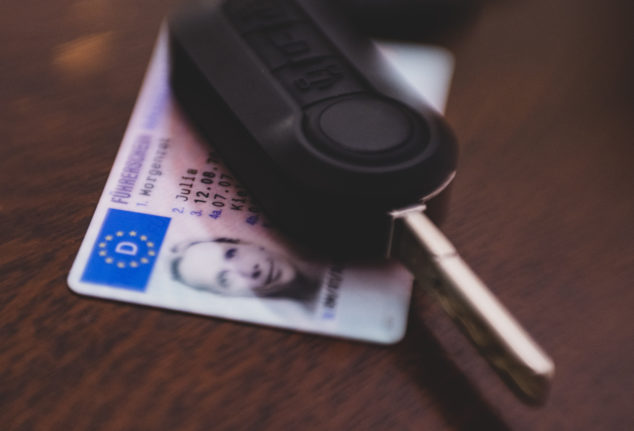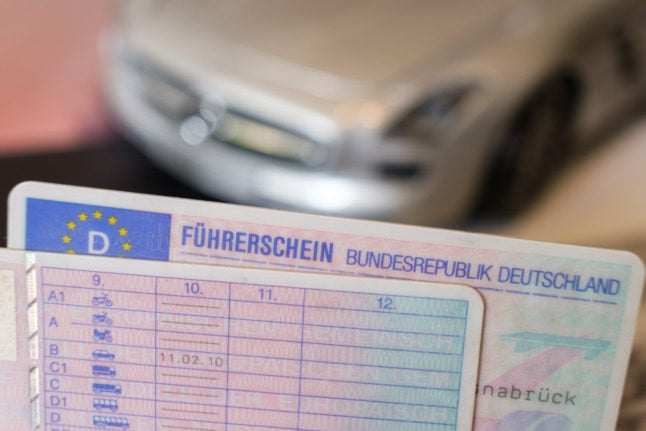Reader question: I live in Germany but I still have my UK driving licence. Do I have to change it if I’m going to drive in Germany. If so, do I need to take a new test?
What’s the latest?
To the relief of many Brits, Germany recently confirmed that it will enter into a reciprocal agreement to allow UK driving-licence holders to swap their licence for a German one – without taking a new test.
While it may sound obvious, since the end of the Brexit transition period on December 31st 2020, UK licences have no been longer treated as EU licences, which means they’re only valid for driving in the EU for a limited period of time.
In the past, drivers were entitled to use their UK licence in their EU country of residence until it expired, but now Brits will have a maximum of six months to swap their licence after taking up residence in Germany.
There had been fears that Brits would be asked to redo their practical or theory test in Germany in order to get their hands on a new German licence. Thanks to a forthcoming agreement between the UK and Germany, however, the process should be much simpler than that.
The pending deal with Germany is one of several reciprocal agreements on driving licences that have been signed between the UK and EU nations in recent weeks – although some nations, such as France, have run into teething problems when ratifying them.
Though things appear to be running more smoothly in Germany, many Brits remain confused about the new rules, and in particular how long they are allowed to use their existing licence before exchanging it.
READ ALSO: End of the Brexit transition period: What do Brits in Germany need to do now?
So, I discovered today that I can’t drive in Germany with my current EU driving license. AND I must swap my EU one for the German one. I can’t keep both. So, when I’m next in the UK, I have to apply again for a UK driving license. #brexit The gift that keeps on giving.
— Garry Walker (@GarryWalker74) April 12, 2021
So, what exactly are the post-Brexit rules for Brits who want to drive in Germany, and how long do they have to get a German licence?
How long is a UK licence valid in Germany?
Brits who live in Germany – or those who spend more than 185 days of the year here – can use their UK licence for up to six months.
How you define this ‘six months’, however, has been a consistent cause of confusion, since it’s unclear whether the clock starts at the start-date of residency, or at the end-date of the transition period (when UK licences ceased to count as EU licences).
According to the Ministry for Transport and Digital Infrastructure (BMVI), it’s best to contact your local licensing authority if you’re unclear about which one of these applies to you.
“Under driver licensing law, a person is deemed to have taken up residence in Germany if they live here for at least 185 days a year,” the BMVI website explains. “The question as to when this period commences in any given case, especially in the case of Brexit, should be settled with the local driver licensing authority.”
According to the UK Government’s Living in Germany advice, those who haven’t swapped their licence before the end of the transition period have until June 30th 2021.
“If you were living in Germany before January 1st 2021, you can use your UK photocard licence to drive in Germany until June 30th 2021, provided that it remains valid in the UK,” the site says.
But unfortunately it appears you won’t be able to swap it if your licence isn’t valid.
“If your UK driving licence is lost, stolen or expires, you will not be able to renew it with the UK Driver and Vehicle Licensing Agency (DVLA) while you are resident in Germany,” says the UK government.
Citizens’ rights group British in Germany has been recommending that people switch their licence “as soon as possible” to ensure you don’t run into problems later on.
For non-residents, the situation is much simpler: if you’re only staying in Germany for a short period of time, you can continue to use your UK licence as normal.
READ ALSO: Brexit – What changes in Germany from January 2021
How to switch to a German driving licence
To swap your UK licence for a German one, you’ll need to contact your local driver licensing authority (Fahrerlaubnisbehörde) and arrange an appointment for the exchange of a non-EU licence.
Though you won’t have to take another driving test, for some categories of driving licence you may be asked to take a sight test and/or complete a first aid training session.
In most cases, you will also be asked to prove your identity and residence in Germany by bringing along your certificate of registration and some valid ID, in addition to a set of passport photos.
Keep in mind some of the deadlines and advice has now changed but our story on the process of changing your UK driving licence for a German one may be helpful.
Your UK driving licence has to be valid for this process. As we said above, the UK government says it cannot be renewed while you’re resident in Germany. Check with authorities in the UK to see if a solution can be found.
Returning to the UK with a German licence
Giving up your UK licence may seem a little scary, but rest assured, you’ll be able to swap it back if you do decide to return to the UK after living in Germany.
For holidays and other short visits, you’ll still be able to use your German licence, much like visitors to EU countries from the UK will be entitled to use their UK licence on a short-term basis.
Holiday makers should be able to drive in the EU on their UK licence.
Residents, however, do need to exchange their UK licence for a local one.
Post-Brexit this is now regulated by national law rather than EU laws. In Germany you must exchange non-EU licences within 6 months. https://t.co/onbvq61PVX
— British in Germany (@BritsinGermany) March 29, 2021
Meanwhile, if you move to another EU country, you can continue to use your German licence until it expires.



 Please whitelist us to continue reading.
Please whitelist us to continue reading.
To be fair, this shouldn’t come as a shock to anyone. The fact that your UK driving licence would have to be replaced by a German one has been on The UK’s to do list for UK citizens living in the EU for a long time. I replaced mine in January. The odd thing is that you have to give up your UK licence which they send back to the DVLA.
I agree, this should not come as an unexpected surprise to the British. They may wish to look at the regulations that the UK Govt. puts on the driving licence’s of other foreign nationals who have longer-time residence status within their own country- and many of those have been in pace way before Brexit was even an issue or a fledgling idea in someone’s head.